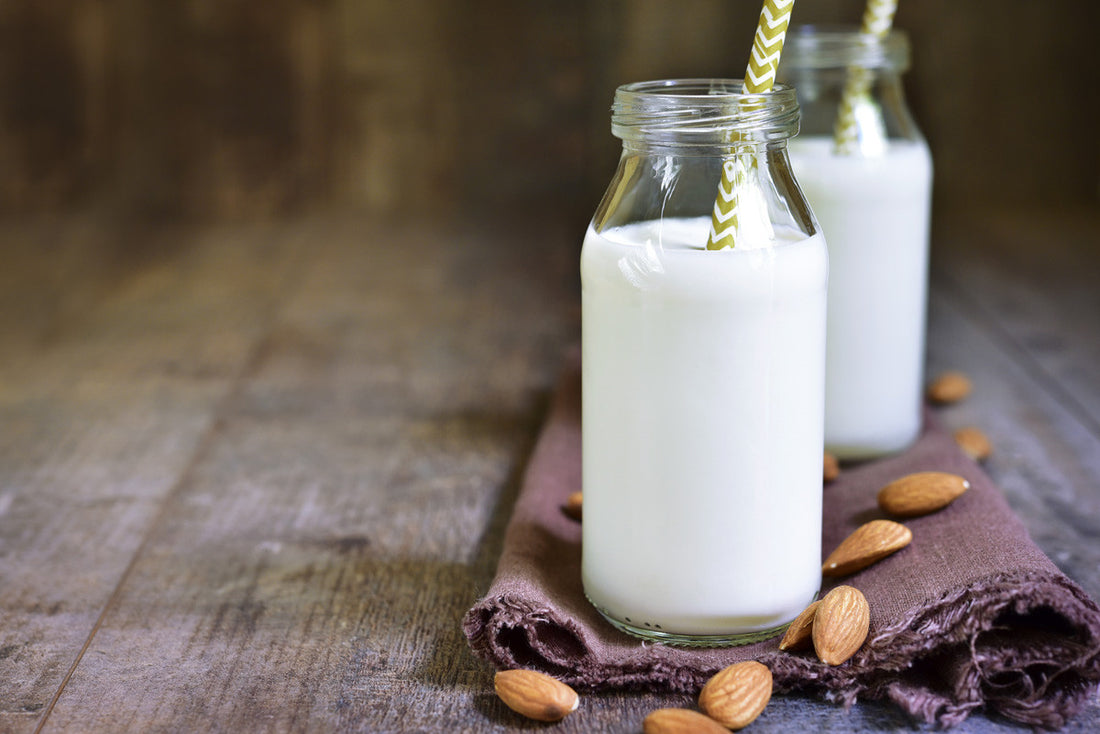Hemp
A complete protein, hemp milk is a good source of calcium, thiamin, niacin, and potassium. Hemp milk is made from hemp seeds and has a notably earthy flavor profile, which makes it more conspicuous than other non-dairy options.
Oat
Oat milk is incredibly high in protein, with between 4 and 5 grams per serving. It also supports digestive health with soluble fiber. While oats do not contain gluten, oats are frequently crossed contaminated with wheat through industrial farming and processing. As a result, celiac patients and others with gluten allergies in particular should be careful when considering oat milk.
Almond
Almond milk is low in calories and most commercial brands are fortified with added calcium. Despite the fact that almonds contain high amounts of protein, almond milk ranks lower in protein than most other non-dairy milk alternatives. On the other hand, almond milk is full of antioxidants, including vitamin E.
Coconut
While coconut milk may not contain as much calcium as dairy milk, it is still a good source of calcium and a superior source of potassium. Coconut milk is rich in the minerals manganese, selenium, copper, zinc and iron. Though it does not naturally contain sugar, the flavor of coconut milk compliments sweet recipes very well. Of all the non-dairy milk alternatives, coconut milk has the highest fat content.
Pea
Pea milk is eco-friendly, there’s no doubt about that. Peas frequently grow in areas that receive natural rainfall, which eliminates the need for industrial irrigation. Additionally, pea milk is an excellent source of protein, packing in 8 grams per 8 ounces, and is fortified with more calcium than dairy milk.
Rice
Free of soy, nuts, and gluten, rice milk is a great choice for people who suffer from allergies. Rice milk is has a neutral flavor that makes it a good choice for recipes, but it can be thin and watery, so look for recipes already adapted for rice milk. This non-dairy milk alternative is somewhat deficient in nutrients, with very little calcium or protein.
Soy
Soy milk has a delicate flavor that complements hot beverages, making it a reliable non-dairy milk for coffee. People with soy intolerance must avoid soy milk. Consumers should look for organic soy milk. Organic foods are farmed in more ecologically sustainable ways, resulting in produce which is better for people and the planet.
Which Non-Dairy Milk Alternative Is Right For You? Environmental considerations: In general, plant-based non-dairy beverages are great for the planet. However, many non-dairy milk alternatives contain a long list of added ingredients which negatively impact the environment. Most of these ingredients are added to improve flavor and prolong shelf-life, like cane sugar, sunflower oil or algal oil. Protein and calcium content. Some milk alternatives lack adequate protein and calcium, so check the label to make sure you’re receiving your daily value. These nutrients can be obtained elsewhere in your diet if necessary. Taste: Of course you want to drink a non-dairy milk that tastes good to you. Be aware that the sweetened and flavored varieties can pack in extra calories and sugar, in addition to being environmentally unfriendly. Non-dairy milk alternatives are easy to DIY at home. If you would like to avoid added ingredients and reduce your carbon footprint, try our DIY almond milk recipe!
